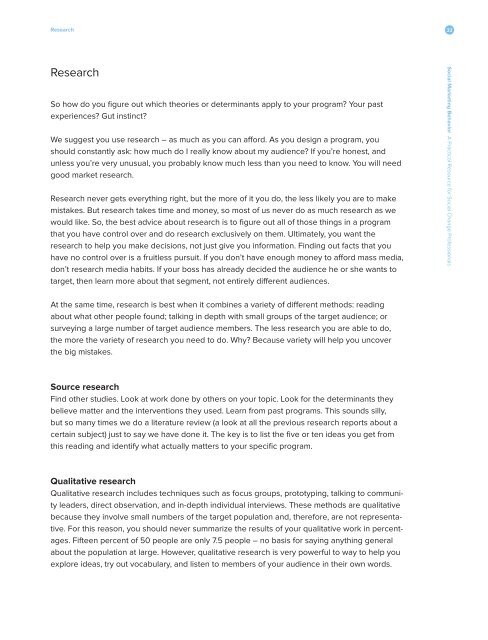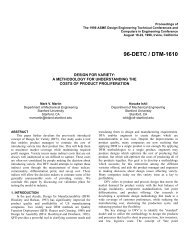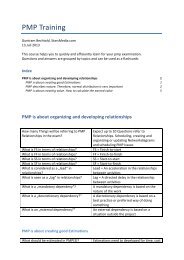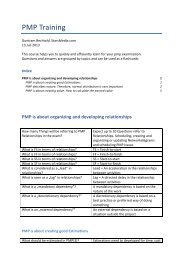Social Marketing
Create successful ePaper yourself
Turn your PDF publications into a flip-book with our unique Google optimized e-Paper software.
Research 33<br />
Research<br />
So how do you figure out which theories or determinants apply to your program? Your past<br />
experiences? Gut instinct?<br />
We suggest you use research – as much as you can afford. As you design a program, you<br />
should constantly ask: how much do I really know about my audience? If you’re honest, and<br />
unless you’re very unusual, you probably know much less than you need to know. You will need<br />
good market research.<br />
Research never gets everything right, but the more of it you do, the less likely you are to make<br />
mistakes. But research takes time and money, so most of us never do as much research as we<br />
would like. So, the best advice about research is to figure out all of those things in a program<br />
that you have control over and do research exclusively on them. Ultimately, you want the<br />
research to help you make decisions, not just give you information. Finding out facts that you<br />
have no control over is a fruitless pursuit. If you don’t have enough money to afford mass media,<br />
don’t research media habits. If your boss has already decided the audience he or she wants to<br />
target, then learn more about that segment, not entirely different audiences.<br />
At the same time, research is best when it combines a variety of different methods: reading<br />
about what other people found; talking in depth with small groups of the target audience; or<br />
surveying a large number of target audience members. The less research you are able to do,<br />
the more the variety of research you need to do. Why? Because variety will help you uncover<br />
the big mistakes.<br />
Source research<br />
Find other studies. Look at work done by others on your topic. Look for the determinants they<br />
believe matter and the interventions they used. Learn from past programs. This sounds silly,<br />
but so many times we do a literature review (a look at all the previous research reports about a<br />
certain subject) just to say we have done it. The key is to list the five or ten ideas you get from<br />
this reading and identify what actually matters to your specific program.<br />
Qualitative research<br />
Qualitative research includes techniques such as focus groups, prototyping, talking to community<br />
leaders, direct observation, and in-depth individual interviews. These methods are qualitative<br />
because they involve small numbers of the target population and, therefore, are not representative.<br />
For this reason, you should never summarize the results of your qualitative work in percentages.<br />
Fifteen percent of 50 people are only 7.5 people – no basis for saying anything general<br />
about the population at large. However, qualitative research is very powerful to way to help you<br />
explore ideas, try out vocabulary, and listen to members of your audience in their own words.<br />
<strong>Social</strong> <strong>Marketing</strong> Behavior A Practical Resource for <strong>Social</strong> Change Professionals

















